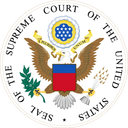History of the Death Penalty in Puerto Rico
Capital punishment was used during the Spanish regime. The first verified executions took place in 1514, when four slaves were hanged for uprising. The first Inquisition court in the western hemisphere was established in San Juan in 1519.
The number of persons executed in Puerto Rico is:
| Century | Number of Executions |
| 16th | 289 |
| 17th | 70 |
| 18th | 44 |
| 19th | 159 |
| 20th | 27 |
(Source: Jalil Sued-Badillo, PhD., La Pena de Muerte en Puerto Rico: Retrospectiva histórica para una reflexión contemporánea, Puerto Rico, 2000.)
The modern death penalty was introduced to Puerto Rico in 1898 by the incoming American government established when Spain turned Puerto Rico over to the United States following the Spanish American War. Puerto Rico abolished the death penalty in 1929, two years after their last execution. In 1952, when Puerto Rico drafted and ratified their own constitution, the Bill of Rights included the straightforward decree “the death penalty shall not exist.” Because of Puerto Rico’s status as a Commonwealth of the United States, it is subject to some federal laws, and the U.S. has sought the death penalty on federal charges in a number of cases. However, no death sentences have resulted.
